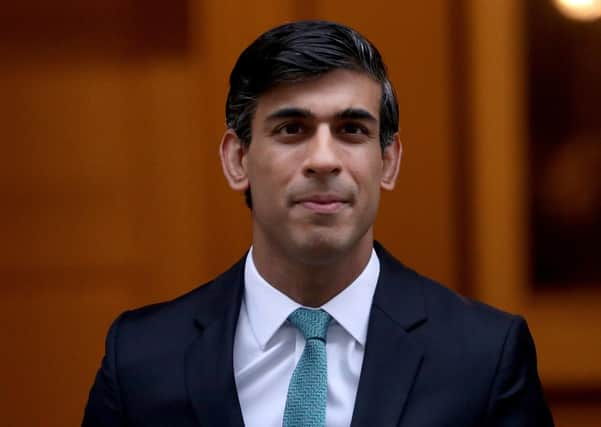Schools catch-up decision represents ‘GDP illiteracy’ by Rishi Sunak – Peter Lindert


Amongst many other things the global data records compellingly show is that what we – and all countries – need to do above all is to invest more in the young from cradle to career.
For every pound (or whatever your currency) of social spend, the younger the person, the greater the long-run social return on society’s investments in them, both on the average and at the still-unexploited margin.
Advertisement
Hide AdAdvertisement
Hide AdFor any given total public social spending investing in child development – particularly in pre-school children – is more pro-growth and pro-equality than spending the same amount on public pensions, tax breaks or on other dis-equitable transfers that favour the richer.


Misunderstandings of GDP impacts of increased social spending often goes hand in hand with partisan financial sounding statements of political expediency such as “balancing the books” or to “repair public finances”.
In the UK, tensions are emerging between different stated objectives. On the one hand, Prime Minister Boris Johnson has committed his government to the ambition of “levelling-up”. Though this term and associated agenda lacks almost any specificity, the impact of the coronavirus pandemic upon education of young people in Britain saw Johnson commit to an Education Recovery Programme led by Sir Kevan Collins.
Irrespective of pandemic impacts, the arguments for such social spending into education are incontrovertible. Larger social-spending budgets – especially if invested in education of young people – have not historically in the UK (or elsewhere) produced any net loss of GDP, skills or work.
Advertisement
Hide AdAdvertisement
Hide AdThis long-run historical message still applies during the current pandemic, despite the concurrence of higher spending and lower GDP. Nothing in the historical record demands such departmental budget cuts or financial austerity as greater social spending and greater GDP per capita have gone hand in hand, and significantly so throughout the late 20th century.
In this instance Treasury budget ambitions to try to “balance the books” and suddenly “repair public finances” after pandemic emergency spending saw Collins’s £15bn putative Education Recovery Programme budget get a severe haircut.
Doing so when compared to the medium and long-term benefits of such social spending “investments” is (not to put too fine a point on it) a form of GDP illiteracy that invites a false bias toward a negative correlation. What might look like good husbandry of the headline expense figure and anti-growth effect of increasing education spending by £15bn is – unfortunately – a mirage.
Indeed, failing to invest the required sums (catch up and otherwise) into education now – for alleged short term budgetary needs – fails to heed this lesson from history, spells trouble and unnecessarily actually lowers possible UK GDP growth in the medium to long-term. This is an especially thoughtless double whammy for the future generations whose education we – in the present – chose not to invest in.
Advertisement
Hide AdAdvertisement
Hide AdIn the UK, your spend profile is out of kilter with what would deliver the most bang for any pound spent. The figures on public spending as a percentage of GDP on education is 5.7 per cent and on pensions is 6.5 per cent. Clearly, generations of powerful groups have co-opted successive governments to favour their interests to the detriment of UK society overall.
Pandemic emergency spending probably will, like the Great Depression of the 1930s, weaken the resistance to a more permanent and universal government social spending and social insurance.
Even after the emergency has passed, continuing much of the new government aid may prove politically popular. It may prove impossible to squeeze the genie of larger social spending back into the bottle.
Fortunately, my research shows time and again that the larger genie need not harm economic growth. Many countries have under-invested in the young, it would be a serious long-term mistake if the UK were to suddenly join them.
Advertisement
Hide AdAdvertisement
Hide AdPeter H. Lindert is Distinguished Professor of Economics at the University of California. His new book Making Social Spending Work is published this week by Cambridge University Press.
Support The Yorkshire Post and become a subscriber today. Your subscription will help us to continue to bring quality news to the people of Yorkshire. In return, you’ll see fewer ads on site, get free access to our app and receive exclusive members-only offers. Click here to subscribe.
Comment Guidelines
National World encourages reader discussion on our stories. User feedback, insights and back-and-forth exchanges add a rich layer of context to reporting. Please review our Community Guidelines before commenting.